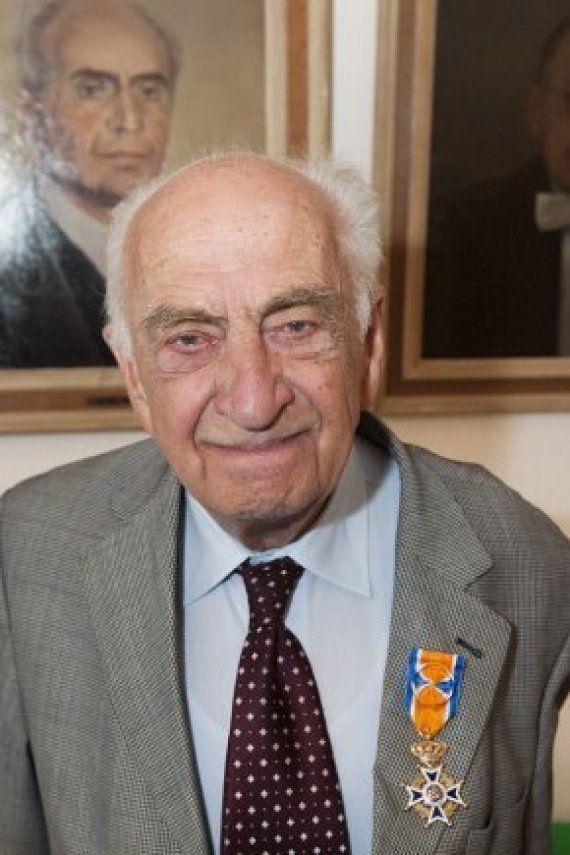Niels Röling had just returned from Africa when in the evening he found that there were no lamps in his new house. ‘We looked at each other. How are we going to do this?’ Then the saviour, professor Anne van den Ban, arrived on bike with a whole collection of bulbs and lamps. Röling could definitely use these, he thought.
This is a precious memory for emeritus professor Röling who would follow up on his teacher Van den Ban. Underneath his sometimes stiff appearance there was someone hiding with ‘a lot of empathy and social intelligence.’ Scientifically they did not always share the same views, but Röling is grateful for the space and opportunities he received.
Van den Ban’s foremost scientific achievement according to Röling was the broadening of the ‘supportive communication sciences’. It was not only about agriculture in his classes, but also about health. Van den Ban drew from psychology, economy and sociology. ‘It is partly thanks to him that social sciences were maintained so well in Wageningen.’
It is partly thanks to him that social sciences were maintained so well in Wageningen.
Niels Röling, emeritus professor Information Sciences
Moreover, Van den Ban was noticed because of his decision to stop as professor at the age of 55. He wanted to help to build up developing countries. This was initially a disappointment, Röling remembered. A job at an Indonesian university was cancelled and it took a while before he found other occupations.
But his involvement with developing countries remained. ‘He was very modern with this’, says Johan Bouma, emeritus professor Soil Sciences. The only bases for a sustainable change was education, he thought. In 1992 he founded the foundation Redelijk Studeren (Translated as Reasonable Study, now the Anne van den Ban Foundation), of which Bouma was the chairman for a while. This foundation payed the Wageningen education for students from developing countries. He did not see this as one-way traffic, Van den Ban wanted discussion and an exchange of ideas.
‘In the board he was exceptionally modest’, says Bouma. ‘He established his authority from his contribution and not from his position.’ He was a man with a vision, the current chairman Pim Brascamp confirms. ‘That mission did not change, only the practical realisation.’
He established his authority from his contribution and not from his position.
Johan Bouma, emeritus professor Soil Sciences
On the initiative of Van den Ban an annual meeting day was organized for the board and the scholarship students. ‘Of course they were very grateful’, says Bouma, ‘but they were encouraged to honestly share their experiences. Which at one point also happened. And that was extremely interesting.’ He was also always considerate towards the students. For example at one point he came with a bag full of scarfs, gloves and hats for the students against the cold winter days in the Netherlands. Or a pile of Economists, which he handed out specifically to certain students because he suspected that an article would interest them.
‘Of course he never stopped’, says Bouma. Without a family he could focus on his interests. Advise to take it slower were wasted on him. He literally had to fall off his bike before he would stop biking, says Bouma. Van den Ban also still enjoyed rowing every Saturday with some others of his age. Only about half a year ago his health forced him to stop.

